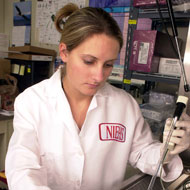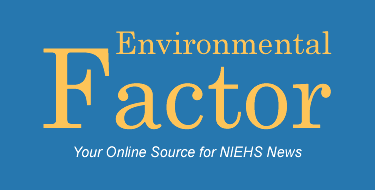
Environmental Factor, July 2008, National Institute of Environmental Health Sciences
Homeschoolers Expand Their Understanding of Climate Change
By Eddy Ball
July 2008
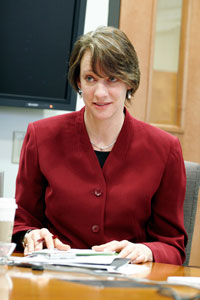
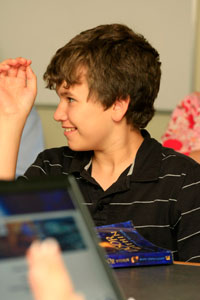
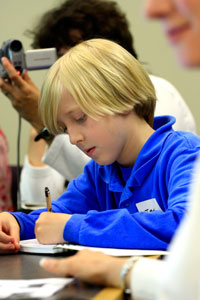
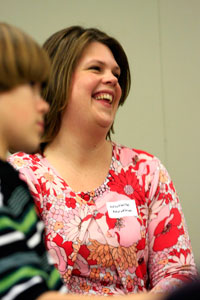
Sometimes, asking is all it takes to open doors. That’s what the parents of a team of Triangle-area homeschoolers found out when they contacted the NIEHS Office of Communications and Public Liaison about a field trip to NIEHS and a workshop on climate change. The parents thought a visit to NIEHS would help their children prepare for the research-presentation component of the 2008 For Inspiration and Recognition of Science and Technology (FIRST) Lego League Climate Connections Tournament.
On May 30, the students and four homeschooling parents joined NIEHS Public Affairs Officer John Peterson and Associate Director Sharon Hrynkow, Ph.D., for a morning workshop at NIEHS. Peterson organized the event, which featured a talk by Hrynkow highlighting the health risks associated with climate change. Peterson took the visitors through a slide show overview of NIH/NIEHS, facilitated a question-and-answer session about the work at NIEHS and enjoyed a working lunch with the students and parents, where they continued their conversation about the environmental health sciences.
Hrynkow, who is one of the key figures in NIEHS climate change efforts, is experienced in presenting material on the subject to scientists and policy makers. Faced with curious twelve- and thirteen-year-olds, she also proved she was up to the task of talking to, rather than down to, younger listeners and shaping her message to meet their learning styles.
Hrynkow engaged the students with questions until they were comfortable enough to participate on their own and let their own interests guide the discussion during the rest of the presentation. Poised as they were for national competition in the First Lego League Tournament (http://firstlegoleague.org/community/HomePage.aspx) ![]() , the homeschoolers were well prepared for the learning experience Hrynkow offered them.
, the homeschoolers were well prepared for the learning experience Hrynkow offered them.
Following Hrynkow’s 30-minute presentation, Peterson resumed his discussion with the students about NIEHS research on ozone/fine particle pollution, the autism-vaccine connection, health effects of mercury and lead, endocrine disrupting compounds and Parkinson’s disease. Peterson also talked about the National Toxicology Program’s Report on Carcinogens and internship opportunities in the NIEHS Summers of Discovery Program, a topic that parents and children found especially interesting.
According to the parents, experiences like this one are valuable for supplementing the home school curriculum with hands-on, real-life experiences. The complementary educational experiences also help motivate students as they engage in mentor-based programs, such as FIRST, that build science, engineering and technology skills.
FIRST is a non-profit organization whose theme-based science programs on robot building reach over 150,000 young people in the United States and other countries each year. Younger participants build robots using legos, and advanced students progress to using sheet metal and welding to make more complicated machines. The organization enjoys broad-based sponsorship by business and educational groups as well as the participation of thousands of volunteers.
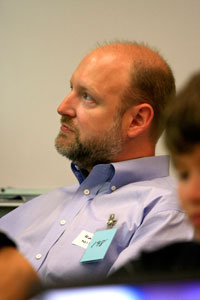
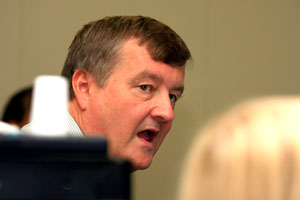
"Intramural Papers of the Month..." - previous story ![]()
![]() next story - "Summers of Discovery..."
next story - "Summers of Discovery..."
July 2008 Cover Page
